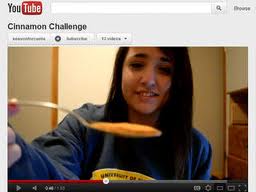As a mom, you knew the day would come when you’d fight with yourself over the right time to have your daughter make her first gynecological visit. You realize your daughter is growing up — you want her to have the best care, but you know she may feel embarrassed or scared. Follow this guide to help determine when your daughter is ready, and then use these tips to prepare her for the upcoming appointment so that you are both comfortable with this unfamiliar territory.
Now? Next Year? Help!
It’s important to take cues from your daughter to decide when the time is right. If she is having extreme discomfort with periods, has a lot of questions, or is becoming sexually active, it is never too early to make an appointment.
If she seems to be fine with the changes her body is going through, Obstetrician and Gynecologist Melissa Delaney, DO, explains that 21 is the age that you should send your daughter to the gynecologist for her first pap smear. However, if your daughter is having problems with her period or is sexually active then she should be seen sooner than age 21.
Preparation & Explanation
Once you’ve decided on the right time, the next step is to prepare your daughter for her visit and to explain the importance of the appointment.
Education & Treatment
A gynecologist can provide information about any topic your daughter may be too nervous to ask you. She will have a confidential source for accurate information, and can learn about prevention and treatment of embarrassing problems. Most girls have their “private” questions answered by friends, but this provides her with another outlet to voice her concerns.
Mom’s Involvement
Talk with her beforehand about your involvement in the appointment. This will make the day of the appointment much smoother and less awkward. Depending on your daughter’s age and level of maturity, the two of you can decide what will work best.
-
Does she want you to take her to the appointment?
-
Does she want you to come back to the exam room with her?
-
Can messages be left on your house phone for all to hear?
Honesty
Be sure that your daughter is aware of the importance of her honesty. Her time with the gynecologist is completely confidential, and she should know that she can ask any questions she has. Assure her that there is nothing she hasn’t heard before, and she is there to help.
Outline the Appointment
Next, give your daughter an idea of how the appointment will play out. There are many different parts to a complete exam, but they do not take long.
Medical History
Have your daughter prepared to answer a few simple questions. She will most likely feel uncomfortable talking about these things for the first time, but knowing the answers to these questions ahead of time should help her through the appointment.
-
When was your last period?
-
Are you sexually active?
-
If so, are you using birth control? Are you with one or multiple partners?
-
Do you have any problems with your period such as pain or discharge?
-
Is there any chance you could be pregnant?
Physical
This is your run-of-the-mill physical. Height, weight and blood pressure will all be taken, and your daughter may also be asked to provide a urine sample. Explain that this portion of the exam acts as a baseline for future visits.
Breast Exam
“Breast cancer is rare in teens,” explains Dr. Delaney, “but the breast exam teaches your daughter how to do a self-exam. This helps her learn how her breasts feel so she will know if something is out of the ordinary in the future.” The gynecologist will most likely explain the importance of a breast self-exam and what to do if she ever feels a lump.
External Exam
Your daughter will be asked to undress and change into a gown and place a sheet on her lap. She will lie back so that the doctor can view the vulva (the external genitalia), and look for any problems such as swelling or sores. While this may be awkward, there is neither pain nor instruments to worry about at this point.
Internal Exam
Your daughter may not have an internal exam during her first visit. Dr. Delaney notes, “Your doctor will decide based off of medical history and conversation with your daughter what is appropriate.” If the gynecologist proceeds with the internal exam, she will use her hands and a tool called a speculum to feel and view the walls of the vagina and cervix. Assure your daughter that she will only feel pressure — she should not feel pain. Tell her to take slow, deep breaths and to relax her muscles if she becomes nervous.
Pap Smear
Gynecologists recommend a Pap smear beginning at age 21. During the internal exam, cells are taken from the cervix and are sent to the lab to check for changes and cervical cancer. She may recommend the human papillomavirus (HPV) vaccine to prevent certain types of cancer. This series of vaccines will be given at a later date.
STD Testing
This is an optional part of the exam. If your daughter is sexually active, she should be tested, and the gynecologist will determine what is best based on their conversation. If the test is recommended, some STDs can be tested for with blood or urine samples. Others can be tested by sample from a cotton swab like the Pap smear. The tests will be sent to the lab, and she will most likely talk with your daughter about the passing of STDs.
After the Appointment
—





